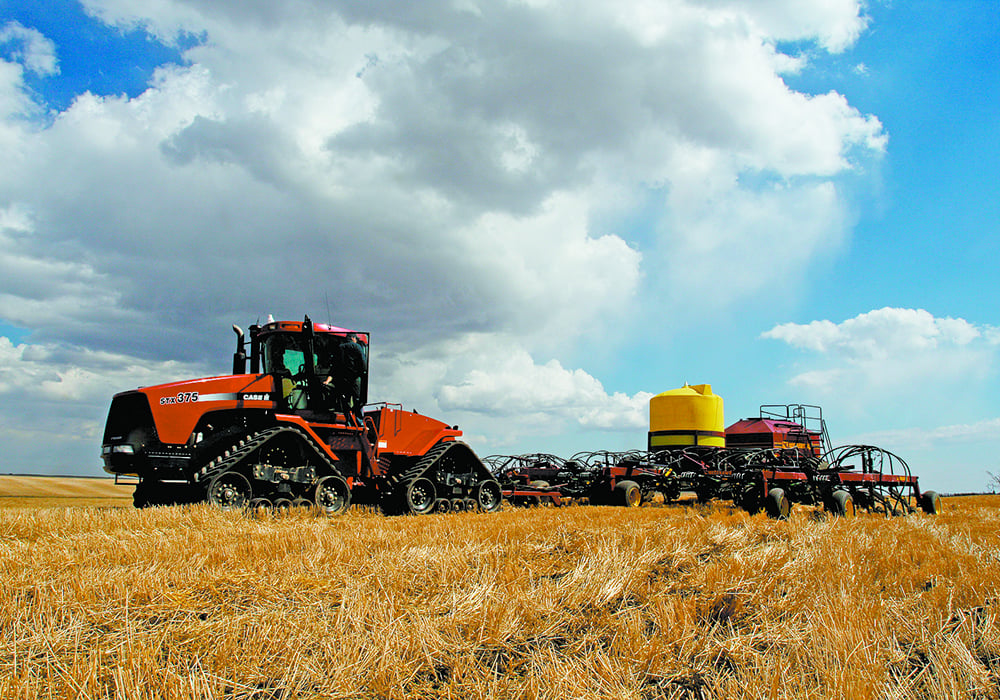Canada’s federal and provincial agriculture ministers are expected to sign the next policy framework in July but remain divided over environmental targets.
They met in Ottawa May 2 to discuss aspects of the five-year partnership.
“We have challenges. We have different views on different things but we’re really working hard to find compromise and a path forward,” federal minister Marie-Claude Bibeau said in an interview. “I’m very confident that we will be in a position to sign the agreement during our meeting in July.”
Read Also

India slaps 30 per cent import duty on yellow peas
India has imposed a 30 per cent duty on yellow pea imports with a bill of lading date on or after Nov. 1, 2025.
That meeting is scheduled for Saskatoon and will set out the programs farmers will be able to access from April 1, 2023 through March 31, 2028.
Bibeau said it should be no surprise that she is pushing for agricultural emissions reductions.
“You’ve seen my mandate letter,” she said. “Our government has an ambitious agenda in terms of reducing emissions and the ag sector has a role to play.”
Doing that the right way is key, she said.
Saskatchewan minister David Marit has said that farmers must remain competitive regardless of the environmental parameters of a program. There are concerns about targets such as the proposed 30 percent reduction in fertilizer emissions and how that will affect farmers’ abilities to produce the yields they need to be profitable.
He said that remains a sticking point.
“The federal government put forward a proposal with a priority in environment and we have a concern how that would impact productivity and growth,” he said after the meeting.
Neither he nor Bibeau offered any numbers, but Marit said colleagues around the table agreed there are questions about impact, how reductions are measured and how producers are credited.
Bibeau said the federal government recognizes the provinces’ different realities but programs must have a direct impact on reducing emissions.
“We can be flexible in the ways to get there but at the end of the day we need to reduce our emissions, so how can we be creative and how can we put in place the right programs to support our farmers, recognizing the good work they are doing,” she said.
Many farmers are already doing what they can through best management practices or purchasing equipment that produces fewer emissions.
The ministers agreed that they will provide concrete examples of efforts underway in their provinces to the upcoming federal-provincial-territorial meetings.
Bibeau said the idea is to reach consensus on an objective and then be flexible on how to reach it.
That objective could be a reduction in terms of percentage or an actual number representing megatonnes of emissions. The group will decide which approach works best, she said.
“I want to be strong with the objectives no matter how we quantify, there’s different ways to formulate it, but we recognize that agriculture is different from one province to another and reducing emissions can be done differently,” Bibeau said. “As long we as reduce emissions, I’ll be happy.”
The ministers are using principles developed at their meeting in Guelph last year to guide their decisions. Their priorities include tackling climate change and environmental protection to reduce emissions and ensuring “robust” business risk management programs.
The principles within the Guelph statement also include advancing sustainable agriculture and food, building sector capacity, growth and competitiveness, research and innovation, trade and market development, and public trust.
Bibeau and Marit both said the ministers agree on most of the topics, other than environmental targets, and will meet by telephone as they work to build consensus.
Marit said global competitiveness remains his key concern.
“Competitiveness and sustainability are always attached one to the other,” Bibeau said.
The ministers also discussed the impacts of the war in Ukraine on food security and fertilizer production and use. Marit suggested there could be opportunities to expand fertilizer production in Canada, and do so in a more environmentally sustainable manner that reduces its carbon footprint.
















